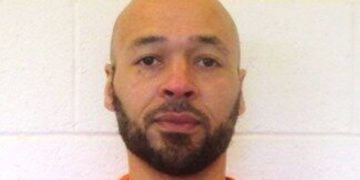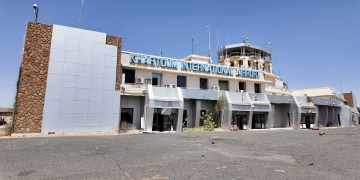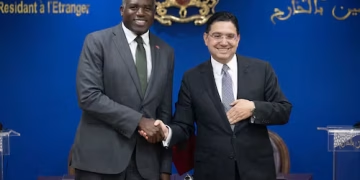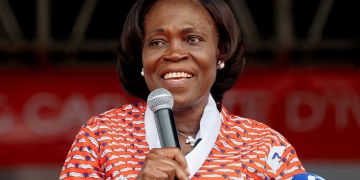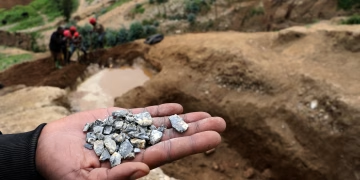Who is John Heche?
John Heche is a key member of Tanzania’s main opposition party, Chama cha Demokrasia na Maendeleo (CHADEMA). He serves as the Vice-Chairman for Tanzania Mainland and previously represented Tarime Rural in Parliament. Known for his fearless criticism of the ruling party, Heche plays an active role in CHADEMA’s reform campaigns. As the October 2025 general election approaches, his influence has made him one of the most visible opposition leaders in the country.
The Arrest: What Happened
On April 22, 2025, CHADEMA announced that police arrested John Heche while he was on his way to attend the treason trial of party leader Tundu Lissu. According to the party, officers intercepted his vehicle near the court. Initially, the police denied holding him, but Heche’s disappearance for several hours created confusion and public anger.
Soon after, reports indicated that police had taken Heche to the Mara region. However, authorities failed to provide clear reasons or official charges. His detention immediately triggered outrage from human-rights groups demanding an explanation.
Months later, on October 18, 2025, authorities again stopped Heche at the Tanzania–Kenya border while he attempted to travel to Kenya for the funeral of opposition leader Raila Odinga. Immigration officers confiscated his passport and claimed he was under a travel ban due to an ongoing case, yet they offered no written evidence.
Finally, on October 22, police arrested Heche again in Dar es Salaam as he attempted to follow up on legal matters connected to Lissu’s trial. They transferred him to Tarime for questioning but released no details about potential charges.
Context: Election Pressure and Opposition Crackdown
Tanzania’s upcoming general election already shows signs of tension. CHADEMA continues to argue that the electoral system heavily favours the ruling Chama Cha Mapinduzi (CCM). The opposition’s slogan — “No Reforms, No Election” — captures its demand for an overhaul of the system before voting begins.
In April, CHADEMA leader Tundu Lissu faced treason charges after addressing supporters at a public rally. Since treason carries the death penalty in Tanzania, the move alarmed many activists. Human-rights groups such as the Legal and Human Rights Centre (LHRC) criticised the arrests as politically motivated and warned that intimidation, restrictions, and travel bans are being used to suppress dissent before the polls.
Why Heche’s Arrest Matters
1. Symbolic Significance
Heche’s detention sends a strong political message. It signals that even senior opposition leaders can face restrictions, discouraging open political participation. Consequently, public faith in the fairness of the election may weaken.
2. Practical Impact
CHADEMA’s campaign activities depend heavily on visible leaders like Heche. His absence disrupts voter outreach, campaign organisation, and party coordination. As a result, the opposition risks losing momentum during a critical phase.
3. Rule-of-Law Concerns
Authorities have still not released a formal charge sheet. This secrecy raises concerns about due process and judicial transparency. Additionally, restricting travel without clear legal grounds violates constitutional freedoms of movement and association.
Government’s Position
Government and police officials have given conflicting explanations. After the April arrest, Dar es Salaam’s police chief claimed no one had been detained. Later, immigration officers alleged that Heche tried to cross the border illegally — a claim CHADEMA firmly denied.
These inconsistencies fuel speculation that political motives, not lawful enforcement, drive the actions against opposition leaders. Furthermore, the lack of documentation and communication reinforces perceptions of state overreach.
Reactions: Domestic and International
The arrests sparked both domestic outrage and global concern. The LHRC described Heche’s treatment as degrading and unlawful. CHADEMA officials condemned the repeated detentions, arguing they were meant to silence dissent.
International media outlets like Reuters and AP News labelled the incident part of a wider crackdown on opposition politics. Diplomats and election monitors have urged the Tanzanian government to uphold civil rights, guarantee transparency, and allow fair competition.
Election Stakes
The October 29, 2025 general election may define Tanzania’s political future. CHADEMA’s refusal to sign a controversial electoral code of conduct — which it says limits independence — has already reduced its campaign opportunities.
Heche’s repeated arrests could further weaken the party’s reach and morale. Moreover, they may influence how Tanzanian voters and global observers assess the fairness and credibility of the upcoming vote.
What Happens Next
Moving forward, several developments will be crucial:
- Charges: Will prosecutors file transparent, lawful charges against Heche?
- Freedom of Movement: Will other opposition leaders face similar travel restrictions?
- Campaign Rights: Can CHADEMA still hold rallies, distribute materials, and reach voters freely?
- International Oversight: Will foreign observers be allowed to monitor the elections effectively?
- Public Response: How will citizens react to the apparent suppression of opposition figures?
Broader Implications
Heche’s case highlights a wider pattern in several African democracies where governments use state power to limit opposition. Once celebrated for political stability, Tanzania now faces growing international scrutiny.
If the government continues to detain opposition leaders, confidence in the integrity of the election could erode both domestically and abroad. This situation might also deter investors, affect donor support, and strain Tanzania’s diplomatic relationships.
Summary
John Heche’s arrest underscores the rising tension surrounding Tanzania’s 2025 election. His detention reflects an environment where political freedoms face growing pressure. As one of CHADEMA’s most influential leaders, Heche’s treatment could shape not only his party’s campaign but also Tanzania’s image as a democracy committed to fairness, justice, and the rule of law.



